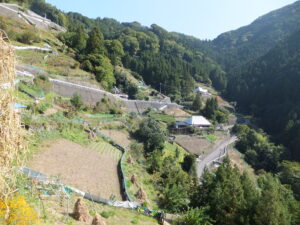農業・生業・環境など
R4-5 4-2 「コロナ禍と政変後におけるミャンマーからタイへの国際労働力移動の諸相」(令和4-5年度 AY2022 新規)
本研究は、Covid19・パンデミックと政変以降のミャンマーからタイへの国際労働力移動の今日的諸相について分析することを目的とする。
R4-5 4-2 "International Labour Migration from Myanmar to Thailand in the Wake of the Covid-19 Pandemic and Political Upheaval" (R4-5 AY2022)
This study analyzes various aspects of international labour migration from Myanmar to Thailand in the wake of the Covid-19 pandemic and political upheaval
R5-6 1-3 「メコンデルタにおける農業の持続可能性評価に資するための水循環機構の把握手法の検討」(令和5-6年度 AY2023 新規)
本研究はメコンデルタ南西端に位置するベトナムCa Mau省内を対象地域とし、現地調査とデジタルデータ(標高モデル、衛星画像)の統合によって、①現地の農業の持続可能性評価に資するために土地利用(農地の利用形態、分布)
R5-6 1-3 "Study on the development of evaluation method of the water cycle to contribute to the sustainability assessment of agriculture in the Mekong Delta" (R5-6 AY2023)
This study focuses on the correlations between agriculture and the water environment in Ca Mau Province, Vietnam, located at the southwestern end of the Mekong Delta
R5-6 1-4 「東〜東南アジアにおける世界農業遺産の推進に資するプラットフォームの構築」(令和5-6年度 AY2023 新規)
本研究の目的は、世界農業遺産(Globally Important Agricultural Heritage Systems: GIAHS)認定地域の理解や推進支援にむけた異分野の研究者と実務家による協働と対話に基づき、①GIAHSになるような農業システムが形成されるに至った歴史的な機序を包括的に理解するとともに
R5-6 1-4 "Construction of a platform to promote the GIAHS program in East-Southeast Asia" (R5-6 AY2023)
The purpose of this project is to (1) understand the historical dynamics that led to the formation of unique agricultural systems that would become Globally Important Agricultural Heritage Systems (GIAHSs) based on collaboration and dialogue between researchers and practitioners from different fields to understand and support the promotion of GIAHS-designated sites, and (2) reflectively examine the characteristics of each research field and practice related to the understanding of agricultural systems
R4-5 1-3 「近代東南アジアにおける社会経済の変容と季節性」(令和4-5年度 AY2023 継続)
本研究では近代東南アジアを対象に、本来自然環境制約の強い季節的な経済変動にどのように変化がみられたのかを明らかにする
R4-5 1-3 "Socio-economic change and seasonality in modern Southeast Asia" (R4-5 AY2023)
This project explores how seasonal fluctuations have changed in modern Southeast Asia, where the natural environments have inherently constrained and defined regional economic activities
R4-5 1-5 「東南アジア⼤陸⼭地部における⽣態環境と⽣業に潜在する健康リスクの評価」(令和4-5年度 AY2023 継続)
南アジア⼤陸⼭地部では、低地⺠が営む⽔稲作が⼭地⺠が⾏う焼畑よりも農業⽣産性が⾼いことを背景として、低地社会が⼭地社会に影響⼒を⾏使してきたとされてきた。実際に、⼭地は飯米が不⾜することが多い
R4-5 1-5 "A study of the inherent health risks of livelihoods in montane mainland Southeast Asia" (R4-5 AY2023)
Previous studies have alleged that the padi or valley states in the lowlands exert political influence over upland communities because of their higher rice productivity and carrying capacity



